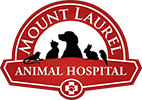Our pets often suffer many of the same ailments that we as humans do. Sometimes, we may have medications at home that can be used to ease their discomfort. However, dogs and cats are very different than humans in how they metabolize certain medications. Extreme caution must be taken when giving medications that have not been prescribed to a pet. Always contact your veterinarian prior to administering any non-prescription medications.
OTC medications that are NEVER safe to give dogs and cats:
- Advil and Motrin (ibuprofen), Aleve (naproxen), and aspirin: These medications belong to the NSAID class of drugs and can have severely toxic effects on the bodies of dogs and cats, leading to stomach ulceration, kidney failure, seizures, and death. There are safe NSAIDs for pets, but you must get them from as a prescription from your veterinarian.
- Tylenol (acetaminophen or paracetamol) can NEVER be given to cats as it will cause liver failure. See below for more information about dogs and this medicine.
- Decongestants such as Sudafed (pseudoephedrine, phenylephrine) can cause extremely dangerous changes to heart rate and blood pressure.
- Enemas that contain phosphate such as Fleet Enemas are very toxic to dogs and cats. Your veterinarian will be able to safely treat constipation at the animal hospital, if indicated.
OTC medications that might be OK to give, but only under your veterinarian’s instruction:
- Pepto-Bismol (bismuth subsalicylate): Sometimes used for minor gastrointestinal upset in our pets or as part of an antibiotic regimen, this must be discussed with the veterinarian as it contains aspirin.
- The acid reducer Prilosec (omeprazole) can be useful in situations of acid reflux, vomiting, and poor appetite. This is a strong acid reducer. Do not use this medicine without first contacting your veterinarian.
- Imodium (loperamide) is an anti-diarrheal medicine that is derived from opioids and can be useful in treating diarrhea that is not caused by an infection. Caution must be used as bacterial, viral, and parasitic infections will need other medicines to treat the cause of the diarrhea. Some pets can be overly-sensitive to this medicine and become sedated. Always ask your veterinarian first.
- Tylenol (acetaminophen or paracetamol) can be used ONLY in dogs and ONLY for short periods of time in otherwise healthy dogs at specific dosages. Do not give this medicine without being instructed by your veterinarian. Acetaminophen, while safe in some dogs, is extremely toxic to cats and will cause liver failure.
OTC medications that are generally safe to give, but still check with your veterinarian first:
- Antihistamines such as Benadryl (diphenhydramine), Zyrtec (cetirizine), Claritin (loratadine), and Allegra (fexofenadine). These can be useful for mild allergies, but dogs and cats take much different doses than people. The decongestant formulations (Benadryl-D, etc) can be lethal to pets.
- Antacids such as Tums (calcium carbonate) may be useful for mild stomach upset and are generally considered safe when used for a short period of time.
- The acid reducer Pepcid AC (famotidine) can sometimes be useful in minor situations of acid reflux, vomiting, and poor appetite. Again, dogs and cats take much different doses than people do.
- Dietary fiber supplements such as psyllium fiber (Metamucil and Konsyl) can be useful in improving texture of loose stool. Make sure there are no artificial sweeteners and contact your vet before using.
- Stool softeners such as Miralax (polyethylene glycol) are often used to manage constipation, but you veterinarian needs to be contacted first to determine if its use is necessary and to recommend a dose.
Author: Dr. Jeffrey Haymaker

